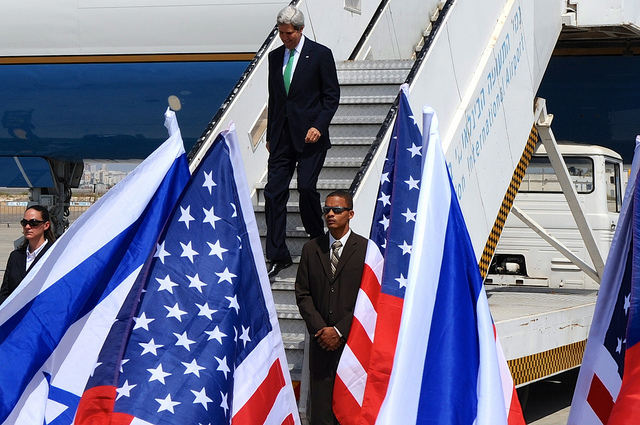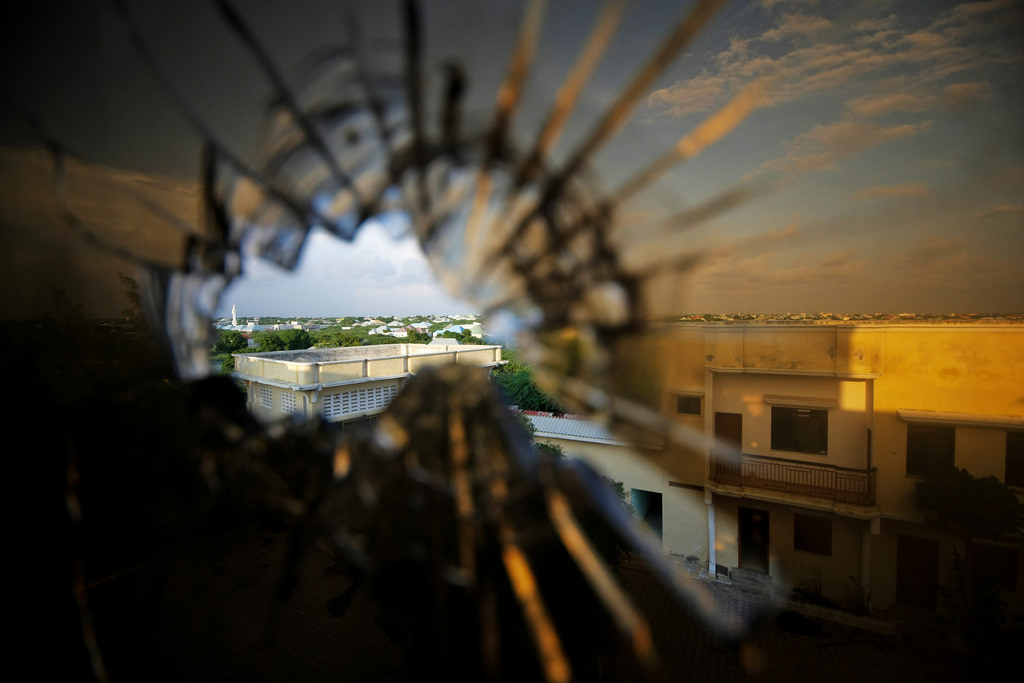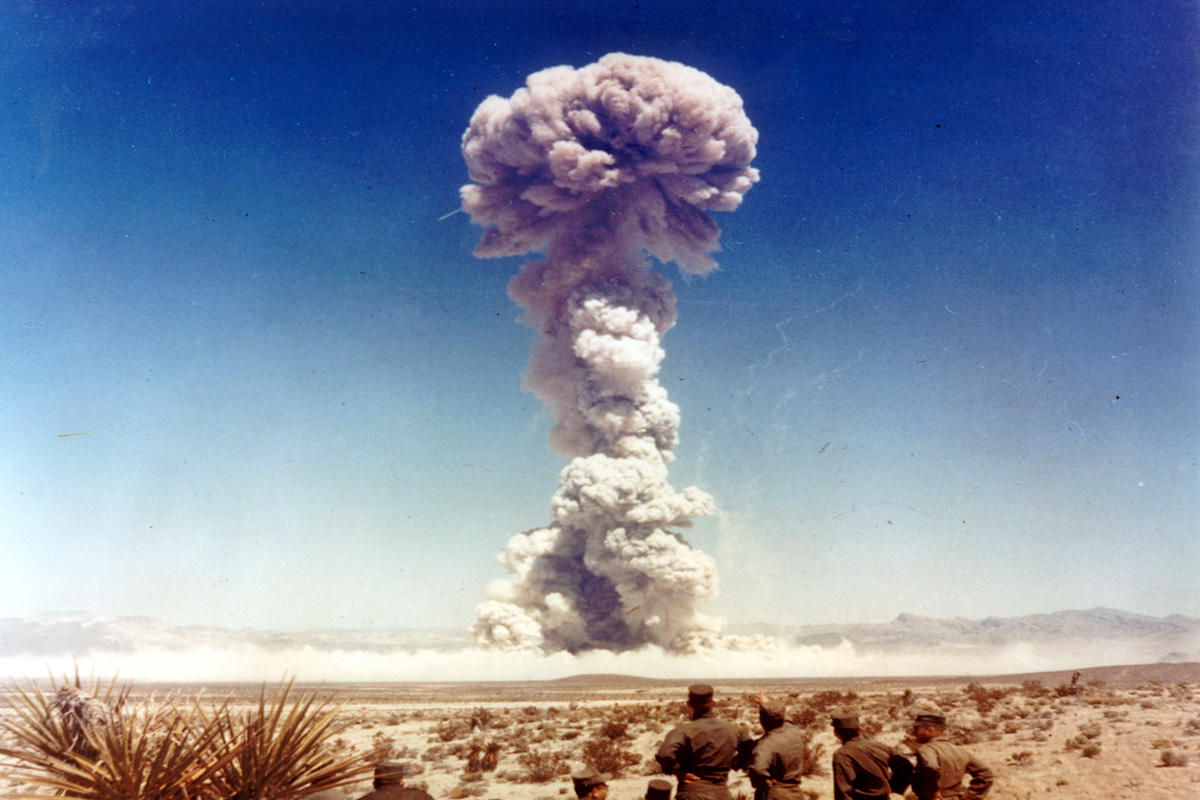
Tuesday April 29, 2014 has come and gone without the conclusion of an Israeli-Palestinian peace agreement. There was no deus ex machina; US Secretary of State John Kerry failed to descend in a chariot driven by Jonathan Pollard and pull a last-minute framework deal out of his battered peace-maker’s hat. In the absence of even mutually agreeable terms of extension, it would seem the curtain has finally come down on our favorite Middle East reality show.
But as they say in show biz “it aint over until the fat lady sings” and I am not, because all indicators on the ground suggest that the parties, Palestinian Authority President Mahmoud Abbas in particular, are already shifting back into pre-negotiations mode. Why else would his first comments after the clock ran out be all about setting the agenda for the next round, which incidentally are focused on borders and Jerusalem (and surprisingly not refugees).
A careful look at the steps that Abbas has taken in the past month suggests the Palestinian leader is taking great pains to ensure he lives to talk another day. His actions since Israel cancelled the March 29th prisoner release have been all about avoiding an upset in the apple cart and preserving his image as a moderate who is committed to negotiations. I mean the man has not only joined CEDAW without reservations, he has called the Holocaust the most heinous crime in human history on Israeli Holocaust Memorial Day! He has all but shot off flares spelling out “I WILL KEEP NEGOTIATING! PLEASE, PLEASE, PLEASE DON’T CUT THE FUNDS!”
Maintaining funding for the Palestinian Authority is, of course, essential for its continuity; while only roughly 20 percent of the Palestinian workforce is employed by the public sector, public spending accounts for 30 percent of Palestinian GDP. Because the remainder of the economy is heavily dependent on services (80 percent of GDP and 65 percent of employment) the shell game that is the independent Palestinian economy would rapidly collapse. But if funding is so important, why embrace a terrorist group dedicated to Israel’s destruction? Isn’t the US congress going to cut off funds?
If we move beyond the binary in which every Palestinian action is evaluated in terms of the probable Israel reaction, then timing and terms of the reconciliation deal with Hamas should make it crystal clear that bringing about Israel’s destruction by bomb, bullet or ballot is the furthest thing from Abbas’ mind. The deal with Hamas was all about domestic politics. If April 29th came and left Abbas empty handed, he would have to worry about more than the denizens of Ramallah’s café class and BDS supporters calling for his head; Mohammad Dahlan, the former head of the Palestinian Preventive Security Service in the Gaza Strip, might actually be coming to get it.
Reconciliation with Hamas was one of the few things that would restore some measure of legitimacy to Palestinian Authority and give Abbas’ personal credibility a shot in the arm. The violent rift with Hamas was largely blamed on Abbas’ complicity with efforts to reverse the 2006 election. Healing this wound would, and has, played well on the Palestinian street. Moreover, with the right terms, Abbas was calculating that a unity government will strengthen his hand by mooting the charge that he only represents half the Palestinian population.
The only question is why Hamas would accept a deal that is practically complete capitulation? Simple — Hamas is also on the brink of oblivion. During the heady days of the Morsi presidency in Egypt, the tantalizing vision of the Moslem Brotherhood rising to ascendency in a transformed region put Hamas in the catbird seat. The unity deals that collapsed in 2011 and 2012 were all about the weakness of Fatah in the face of the surging Islamist undercurrent of the Arab spring. Not only did Hamas fall into step with Morsi, as evidenced by the 2012 ceasefire deal, they threw themselves into Qatar’s well-heeled embrace. Sure Qatar’s position on Syria complicated thing with Hezbollah and Iran, but you have to catch the wave! Until it collapsed under the boots of a resurgent Egyptian military, who has placed Hamas in the crosshairs of its own war on terror.
Hamas may be a terrorist organization, but it is also a political organization that needs followers and funds in order to survive. You cannot carry out a second Holocaust if your coffers are barren and your foot soldiers have all jumped ship and joined another faction. With Morsi’s downfall, Egypt has locked up the Rafah crossing and gone after Gaza’s smuggling tunnels to the tune of some $230 million each month. Qatar, after Saudi/ GCC spanking, has dropped off the funding and lobbying scene, leaving Hamas broke, friendless, and facing challenges from the left and right. They too fear a return of Dahlan, but also have Islamic Jihad to contend with.
Abbas isn’t blowing smoke up Lady Ashton’s skirt when he says that the unity government will uphold the PLO’s obligations vis-à-vis the Oslo process and the Quartet conditions. In its present condition, Hamas has little choice but to accept the terms of a deal that may, ultimately, require they recognize Israel.
Like Netanyahu, Abbas and Hanninyeh have learned that maintaining their feeble grip on power depends on continuing negotiations. None of the current leaders have the legitimacy to make the concessions necessary to close a viable deal. They know this. However, like the proverbial emperors, they have no new clothes. There is no alternative to negotiations that doesn’t mean their downfall. So, in some weird perversion of ripeness, they are trapped in the less-hurtful stalemate of perpetual negotiations as long as the US and the EU will continue to underwrite it.
Roger Cohen was right; this game is sustainable. Unless someone calls off the upcoming Palestinian elections.








0 comments